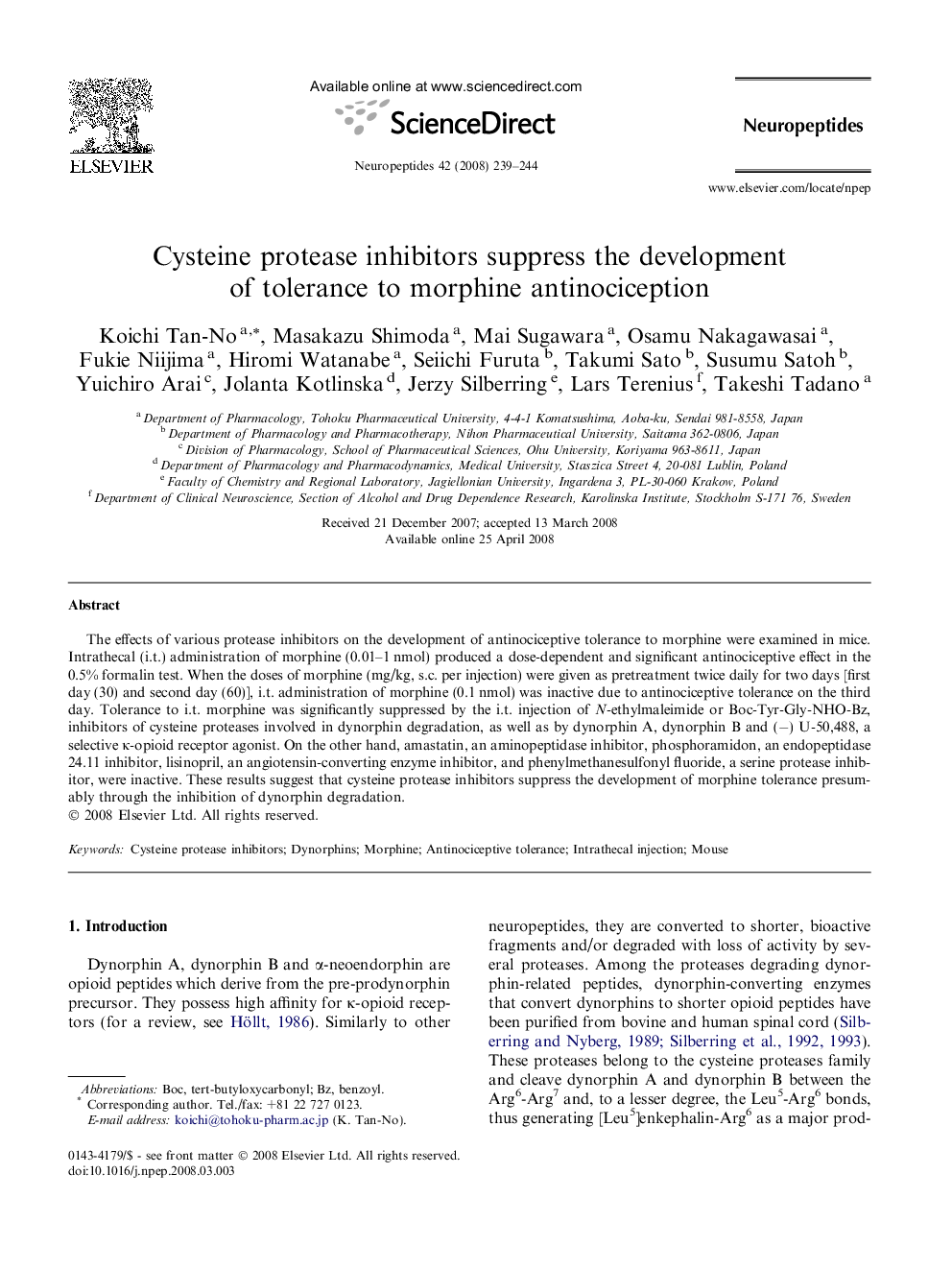| Article ID | Journal | Published Year | Pages | File Type |
|---|---|---|---|---|
| 2808419 | Neuropeptides | 2008 | 6 Pages |
The effects of various protease inhibitors on the development of antinociceptive tolerance to morphine were examined in mice. Intrathecal (i.t.) administration of morphine (0.01–1 nmol) produced a dose-dependent and significant antinociceptive effect in the 0.5% formalin test. When the doses of morphine (mg/kg, s.c. per injection) were given as pretreatment twice daily for two days [first day (30) and second day (60)], i.t. administration of morphine (0.1 nmol) was inactive due to antinociceptive tolerance on the third day. Tolerance to i.t. morphine was significantly suppressed by the i.t. injection of N-ethylmaleimide or Boc-Tyr-Gly-NHO-Bz, inhibitors of cysteine proteases involved in dynorphin degradation, as well as by dynorphin A, dynorphin B and (−) U-50,488, a selective κ-opioid receptor agonist. On the other hand, amastatin, an aminopeptidase inhibitor, phosphoramidon, an endopeptidase 24.11 inhibitor, lisinopril, an angiotensin-converting enzyme inhibitor, and phenylmethanesulfonyl fluoride, a serine protease inhibitor, were inactive. These results suggest that cysteine protease inhibitors suppress the development of morphine tolerance presumably through the inhibition of dynorphin degradation.
